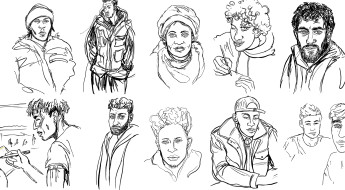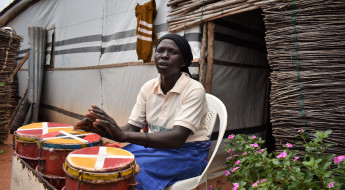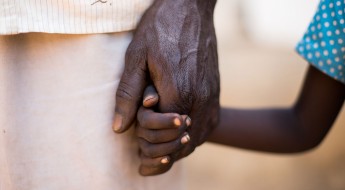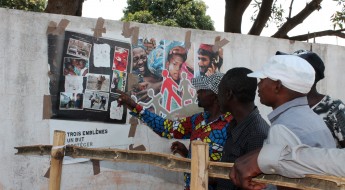Democratic Republic of the Congo: Children enduring war and family separation
 Conflict and armed clashes across the DRC have forced more than 3 million people to flee their homes. Becoming separated from their families is an especially traumatic experience for children. Marie-Clarisse, Sylvestre and Bob, seen here about to board the flight at Goma airport, are among the lucky ones. But the ordeal will live with them for the rest of their lives.CC BY-NC-ND / ICRC / Mathias KEMPF
Conflict and armed clashes across the DRC have forced more than 3 million people to flee their homes. Becoming separated from their families is an especially traumatic experience for children. Marie-Clarisse, Sylvestre and Bob, seen here about to board the flight at Goma airport, are among the lucky ones. But the ordeal will live with them for the rest of their lives.CC BY-NC-ND / ICRC / Mathias KEMPF In June this year, Marie-Clarisse became separated from her parents as the family fled clashes between the army and other groups in Sud-Kivu province in the east of the country. We found her 70 kilometres from her home. She had been walking for three days. After a full day’s travel, including two flights, she was finally reunited with her family in the south-eastern city of Lubumbashi. It can sometimes take us months or even years to find a missing person. But every reunion makes all the effort worthwhile – a moment of unbridled joy and happiness.CC BY-NC-ND / ICRC / Wassy KAMBALE
In June this year, Marie-Clarisse became separated from her parents as the family fled clashes between the army and other groups in Sud-Kivu province in the east of the country. We found her 70 kilometres from her home. She had been walking for three days. After a full day’s travel, including two flights, she was finally reunited with her family in the south-eastern city of Lubumbashi. It can sometimes take us months or even years to find a missing person. But every reunion makes all the effort worthwhile – a moment of unbridled joy and happiness.CC BY-NC-ND / ICRC / Wassy KAMBALE In 2010, Bob and Sylvestre’s father was shot dead in fighting between the army and a local militia group in the north-west of the country. A neighbour took the twins in for a time after they were unable to locate their mother. The boys were eventually reunited with their grandfather, in the south-eastern province of Lualaba, following extensive searches by the ICRC and the National Red Cross Society.CC BY-NC-ND / ICRC / Wassy KAMBALE
In 2010, Bob and Sylvestre’s father was shot dead in fighting between the army and a local militia group in the north-west of the country. A neighbour took the twins in for a time after they were unable to locate their mother. The boys were eventually reunited with their grandfather, in the south-eastern province of Lualaba, following extensive searches by the ICRC and the National Red Cross Society.CC BY-NC-ND / ICRC / Wassy KAMBALE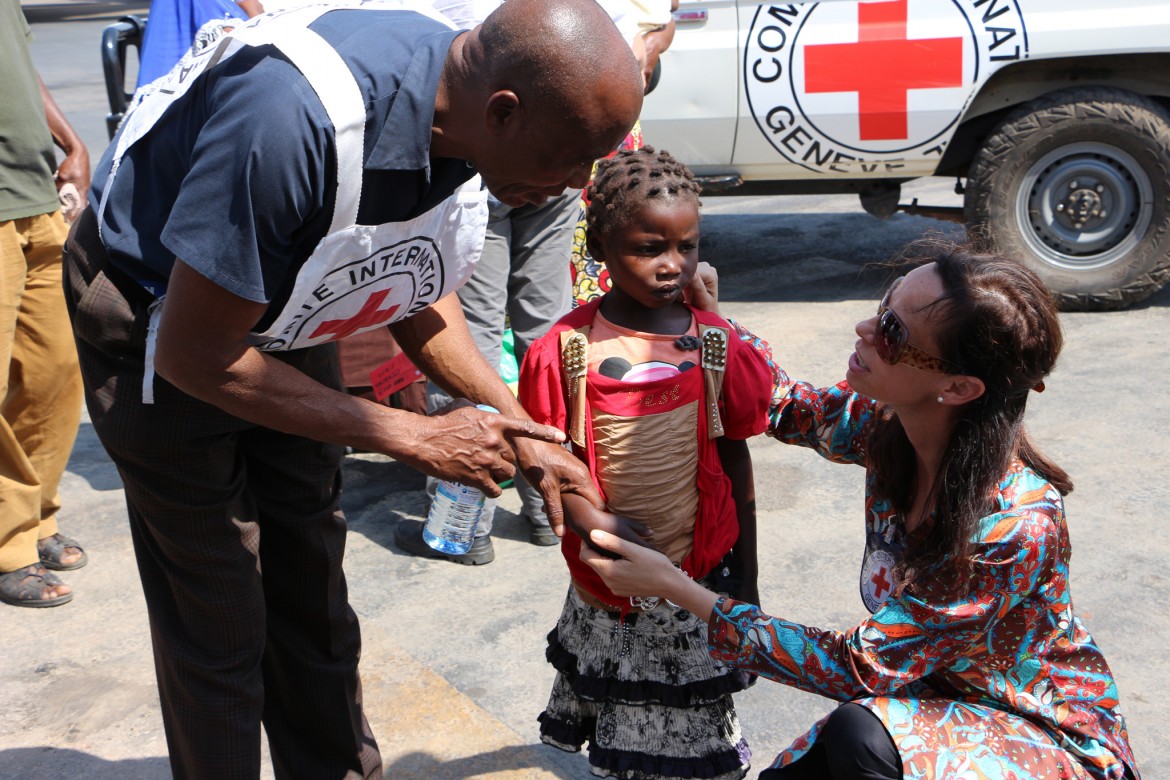 Euphrasie was only four years old when she became separated from her parents amid clashes in April 2013. She lived with her adoptive parent – an army sergeant – until her father contacted us to help locate his daughter. Now aged nine, Euphrasie is finally back with her family. Christine Cipolla, head of the ICRC delegation in the DRC, is seen here trying to offer the girl some comfort and put her mind at ease. “Children always need time to readjust, especially when they were separated at such a young age. They often have no recollection of their birth parents. So we have processes in place to ease the transition back into the family.”CC BY-NC-ND / ICRC / Paulin BASHENGEZI
Euphrasie was only four years old when she became separated from her parents amid clashes in April 2013. She lived with her adoptive parent – an army sergeant – until her father contacted us to help locate his daughter. Now aged nine, Euphrasie is finally back with her family. Christine Cipolla, head of the ICRC delegation in the DRC, is seen here trying to offer the girl some comfort and put her mind at ease. “Children always need time to readjust, especially when they were separated at such a young age. They often have no recollection of their birth parents. So we have processes in place to ease the transition back into the family.”CC BY-NC-ND / ICRC / Paulin BASHENGEZI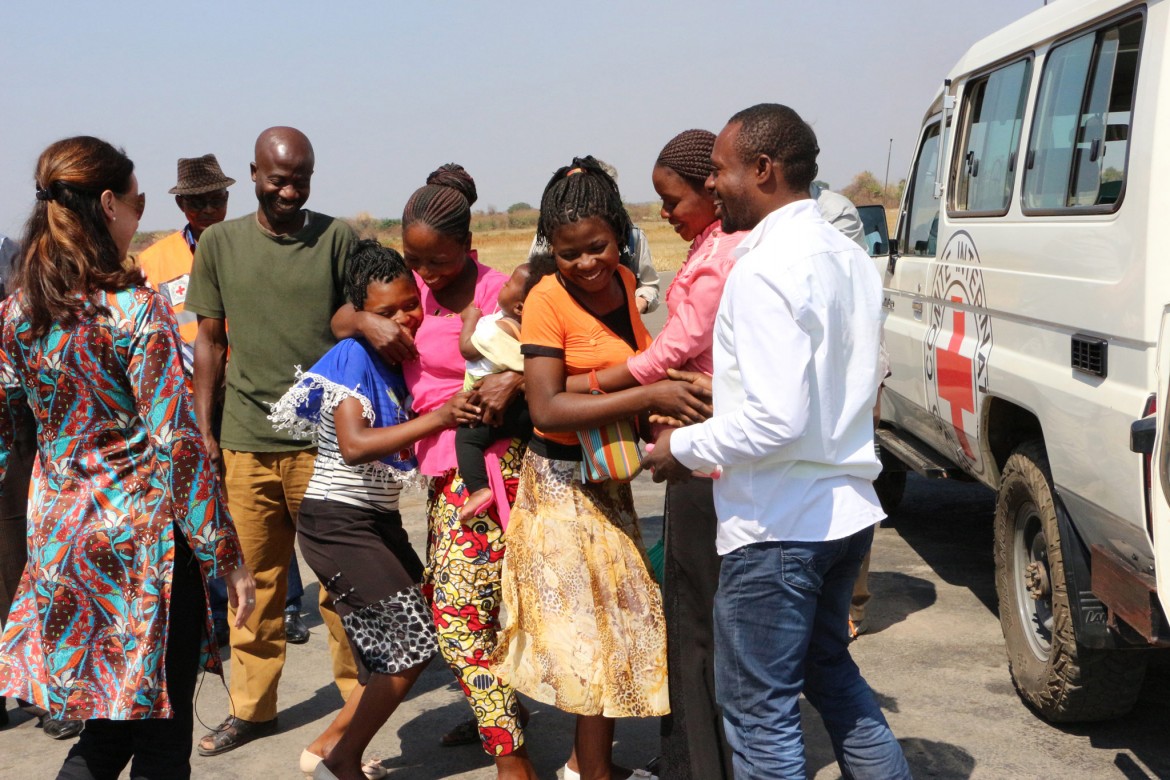 Marie became separated from her parents in 2016 as they fled clashes between ethnic groups in their home village in the south-eastern province of Tanganyika. She ended up at a camp for internally displaced people, where she was cared for by ICRC staff. Marie was reunited with her uncle in Lubumbashi on 22 August this year.CC BY-NC-ND / ICRC / Paulin BASHENGEZI
Marie became separated from her parents in 2016 as they fled clashes between ethnic groups in their home village in the south-eastern province of Tanganyika. She ended up at a camp for internally displaced people, where she was cared for by ICRC staff. Marie was reunited with her uncle in Lubumbashi on 22 August this year.CC BY-NC-ND / ICRC / Paulin BASHENGEZI The same day saw a group of demobilized children reunited with their families after months, or in some cases years, apart. Many children in the DRC are still enlisted into armed groups by force or against their will, even though the practice is banned by law. Some are sent to fight. Others are used as cooks, porters, messengers, scouts, mascots or spies. Some are subjected to sexual exploitation. Girls are forced into marriage. For many, it takes years before they can return to civilian life.CC BY-NC-ND / ICRC / Paulin BASHENGEZI
The same day saw a group of demobilized children reunited with their families after months, or in some cases years, apart. Many children in the DRC are still enlisted into armed groups by force or against their will, even though the practice is banned by law. Some are sent to fight. Others are used as cooks, porters, messengers, scouts, mascots or spies. Some are subjected to sexual exploitation. Girls are forced into marriage. For many, it takes years before they can return to civilian life.CC BY-NC-ND / ICRC / Paulin BASHENGEZI
In the Democratic Republic of the Congo (DRC), war and other violence is the number-one reason that children become separated from their parents. "Conflict is devastating millions of lives in the Democratic Republic of the Congo," said Christine Cipolla, head of the ICRC delegation in the country. "More than 3 million people are displaced and utterly destitute, often with nothing to eat and without a roof over their heads.
Many children have become separated from their families and have no way of keeping in touch. More worrying still, some of them have been enlisted into armed groups." In August this year we chartered a flight to reunite 24 children, including 18 former armed group members, with their families back home in Nord-Kivu, Haut-Lomami, Tanganyika and Haut-Katanga provinces.

